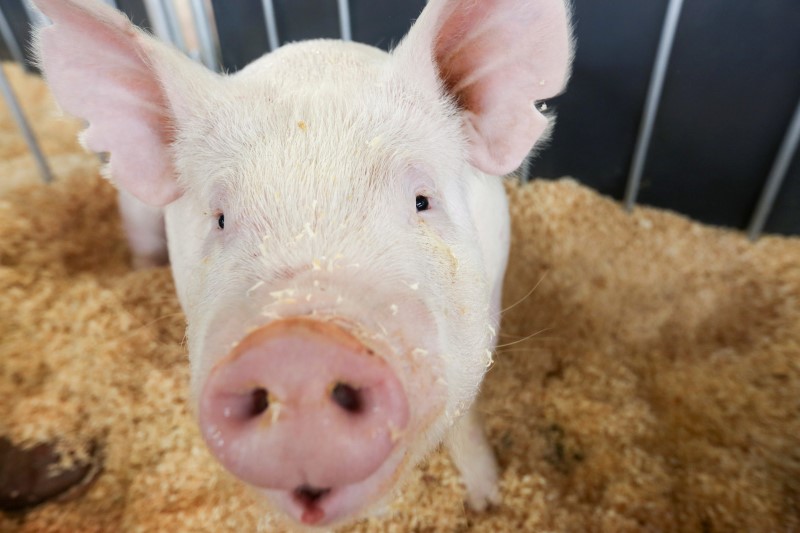By Ben Hirschler
LONDON, Dec 8 (Reuters) - A British animal genetics firm,
working with U.S. scientists, has bred the world's first pigs
resistant to a common viral disease, using the hot new
technology of gene editing.
Genus GENS.L , which supplies pig and bull semen to farmers
worldwide, said on Tuesday it had worked with the University of
Missouri to develop pigs resistant to Porcine Reproductive and
Respiratory Syndrome Virus (PRRSv).
The condition, also known as blue-ear disease, can be fatal
as it affects the animals' immune system and costs farmers
hundreds of millions of dollars a year. There is no cure.
By using precise gene editing, the team from the University
of Missouri was able to breed pigs that do not produce a
specific protein necessary for the virus to spread in the
animals. Their research was published in journal Nature
Biotechnology.
Early-stage studies showed the new PRRSv resistant pigs,
when exposed to the virus, did not get sick and continued to
gain weight normally.
The development of these resistant pigs is further proof of
the power of gene editing, which is taking the biotech industry
by storm. Genus Chief Scientific Officer Jonathan Lightner said
it was "a potential game-changer for the pork industry".
Editing the genes of living organisms holds out great
promise for treating diseases and improving agricultural crops
and animal species. But when applied to humans it could also be
used to create "designer babies", prompting critics to call for
a global ban on genetic modification of human embryos.
The technology allows scientists to edit genes by using
biological "scissors" that operate a bit like a word-processing
programme that can find and replace selected stretches of DNA.
It has been put to work in laboratories around the world,
even as the ethical and safety issues it raises are fiercely
debated.
An international summit on human gene editing in Washington
last week urged caution on human gene editing but said editing
genes in human embryos was permissible for research purposes.
The work on Genus's gene-edited pigs is still at an early
stage and Lightner said there were several critical challenges
ahead to fully develop and commercialise the technology.
Liberum analyst Sophie Jourdier said commercialisation would
likely take five years or more but the new resistant pig line
would add to Genus's long-term growth prospects, given the
economic importance of PRRSv.
PRRSv affects millions of pigs and costs the swine industry
around $700 million a year in the United States and 1.5 billion
euros ($1.6 billion) in Europe, according to a 2011 Iowa State
University study cited by Genus.
($1 = 0.9211 euros)
(Editing by David Evans)
